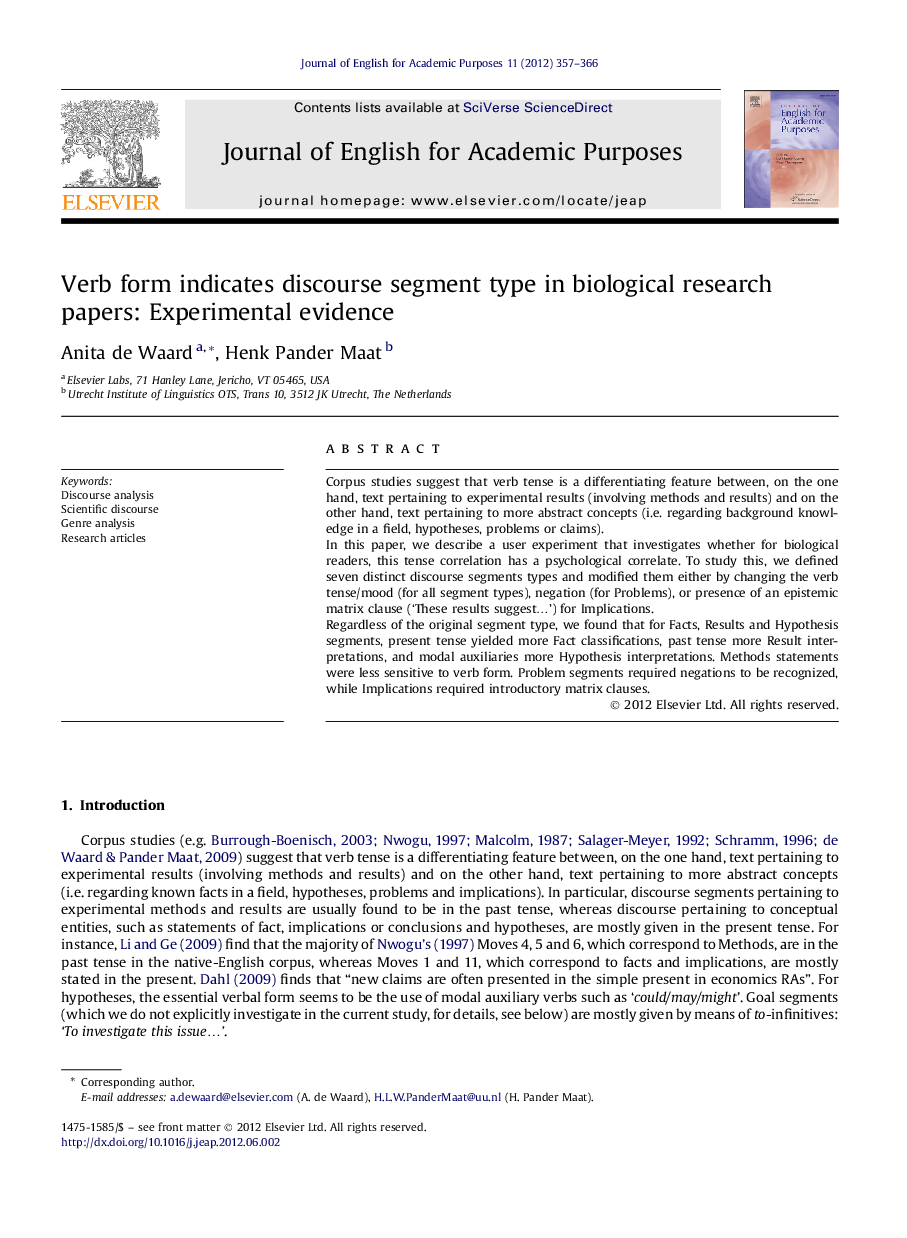| Article ID | Journal | Published Year | Pages | File Type |
|---|---|---|---|---|
| 360307 | Journal of English for Academic Purposes | 2012 | 10 Pages |
Corpus studies suggest that verb tense is a differentiating feature between, on the one hand, text pertaining to experimental results (involving methods and results) and on the other hand, text pertaining to more abstract concepts (i.e. regarding background knowledge in a field, hypotheses, problems or claims).In this paper, we describe a user experiment that investigates whether for biological readers, this tense correlation has a psychological correlate. To study this, we defined seven distinct discourse segments types and modified them either by changing the verb tense/mood (for all segment types), negation (for Problems), or presence of an epistemic matrix clause (‘These results suggest…’) for Implications.Regardless of the original segment type, we found that for Facts, Results and Hypothesis segments, present tense yielded more Fact classifications, past tense more Result interpretations, and modal auxiliaries more Hypothesis interpretations. Methods statements were less sensitive to verb form. Problem segments required negations to be recognized, while Implications required introductory matrix clauses.
► We modified the verb tense/mood, negation, and modality from clauses from several biology papers. ► We asked biologists to identify the discourse segment types for the original and modified clauses. ► The present tense was associated with Facts, past tense with Results, and modals with Hypotheses. ► Problem clauses were defined by negations and Implication segments by epistemic matrix clauses. ► These results provide a first confirmation that verb form affects the discourse intent of a clause.
